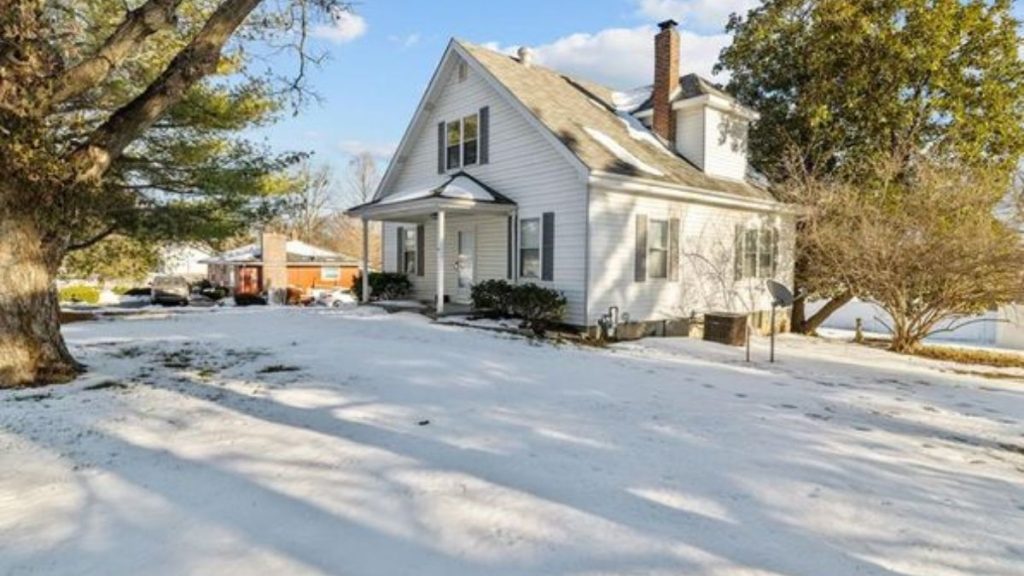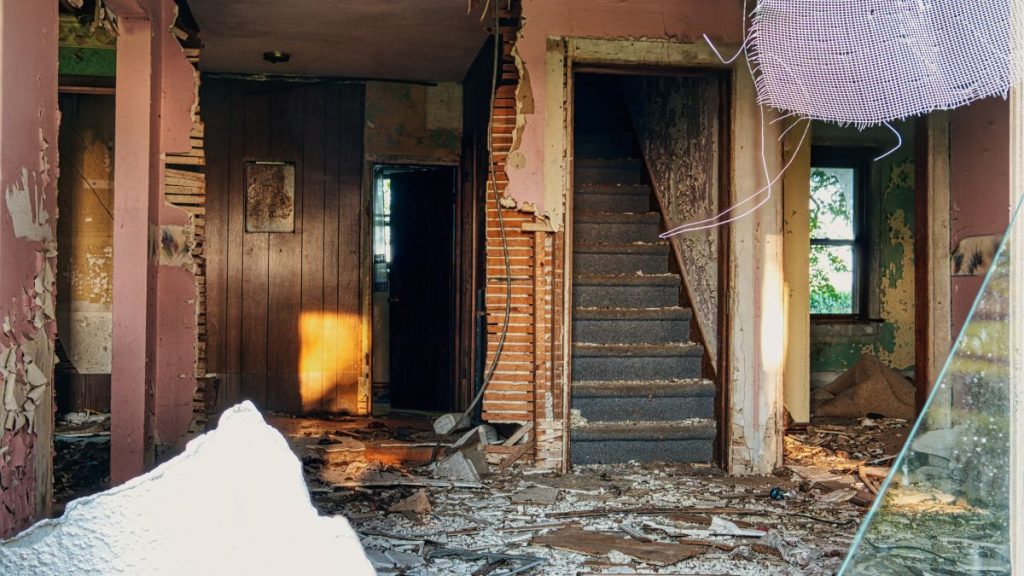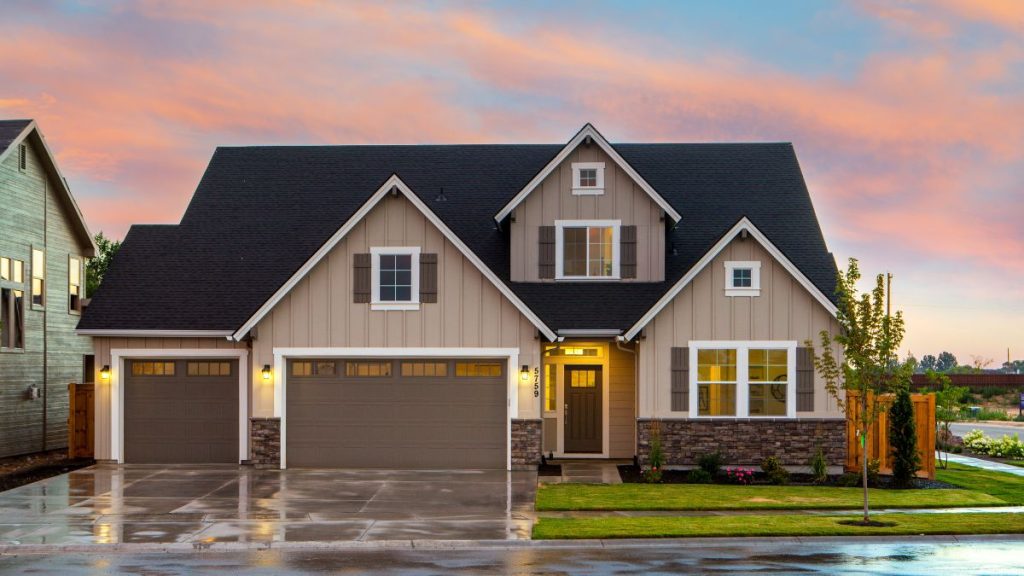How To Keep Your Home Safe and Energy-Efficient When You’re Away This Winter?
When winter rolls in, most of us think about cozy evenings, warm blankets, and maybe that long trip we’ve been planning to escape the cold. But here’s what many homeowners forget — while you’re chasing the sun, your empty house is fighting the season on its own.
I’ve seen this too many times: frozen pipes bursting like time bombs, gutters splitting under ice, and energy meters spinning away even when nobody’s home. It’s not neglect — it’s just how homes behave when left alone in harsh weather.
That’s why prepping your place before a winter vacancy isn’t about paranoia; it’s about protection. You’re not just keeping the lights off — you’re making sure you don’t come back to thousands in repairs or an energy bill that looks like someone’s still living there.
Why Winter Vacancies Are a Hidden Threat to Your Home?
Let’s be honest — an empty home looks peaceful from the outside, but inside, it’s quietly vulnerable. Cold air doesn’t care if you’ve left town. Pipes freeze. Heat leaks through tiny gaps. Moisture creeps into walls. And the longer your home sits empty, the more small problems multiply.
Financially, it adds up fast. According to the Insurance Information Institute, a single burst pipe can cause over $5,000 in water damage on average. That’s before you even count the hidden costs — mold cleanup, furniture loss, or weeks of repairs.
Then there’s energy waste. Most homeowners think turning off the heat completely will save money — but that move alone can destroy your plumbing. The smarter play? Keep it warm enough (around 55°F / 13°C) to protect your pipes and your wallet.
And let’s not forget security risks. Thieves love the dark, quiet rhythm of winter neighborhoods. No lights flicking on, no footsteps in the snow — it’s an easy read for anyone watching. I always tell homeowners: if your house looks asleep for too long, someone will notice.
It’s not about fear — it’s about awareness. Your home isn’t fragile, but it does need help surviving cold months unattended. Think of this season as a test of foresight: if you prepare right now, you won’t just prevent damage — you’ll step into spring without a single repair call or a shocking bill waiting on your counter.
So before we move into the practical checklist, ask yourself: if your home could talk, what would it say about being left alone this winter?
Step-by-Step Home Prep Before You Leave

If you’re planning to head south or simply leave your place empty for a few winter weeks, your prep shouldn’t start the day before you go. It’s like setting up a safety net — every small task you check off now protects you from big trouble later.
Start with your HVAC:
Schedule a quick servicing before you leave. A dirty filter or unbalanced system can waste more energy than you think. As per experts, you shouldn’t shut the system off completely — just set it around 55°F to 60°F (13–15°C). That sweet spot keeps pipes from freezing, moisture from building, and your house from feeling like a fridge when you get back.
Next, unplug what doesn’t need power:
Coffee makers, gaming consoles, routers — all those silent energy suckers add up. Daniel Mock from Mister Sparky calls them “vampire electronics” because they keep drawing energy even when they’re off. Pulling the plug not only saves a few bucks but also reduces the risk of electrical surges while you’re gone.
Give your roof and gutters some love:
This is where most homeowners slip. Have a pro look for loose shingles, cracked flashing, or clogged drains. Experts says catching leaks before the freeze “can save you from thousands in ice-dam damage.” He’s right. A half-hour check could save you an entire roof repair.
Lock up smart, not hard:
Before leaving, make your home look alive. Use timers or smart plugs to turn a few lights on at night, forward your mail, and tell a trusted neighbour you’ll be away.
When I prepare my own place for winter travel, I always imagine this: if someone drove by at night, would they think someone’s home? That mindset alone changes how you secure your space.
Smart Ways to Cut Utility Bills While You’re Gone
I get it — nobody wants to pay for heat in an empty house. But turning everything off isn’t saving money; it’s gambling with repairs.
Here’s the smarter play.
Set your thermostat around 55°F (13°C) — warm enough to protect pipes, cool enough to save cash. If you have a smart thermostat, schedule temperature drops during daytime hours and raise it a bit at night to prevent deep freezes. You can monitor and adjust everything from your phone — it’s like checking on your home from miles away.
Water heaters are another silent cost. Turn them to vacation mode or lower the temp to 120°F — a small tweak that can cut your energy bill by up to 10%.
Close most blinds and curtains to keep the warmth in, but leave a few slightly open. That tiny detail does two things: helps with insulation and makes your house look lived in.
Before you leave, call your utility providers. Some companies let you reduce or pause certain services during long absences. Realtor mentioned this tip, and it’s worth the five-minute call — those seasonal programs can shave off more than you’d expect.
These aren’t huge moves — but together, they can trim your winter utility bills by 5–15%. That’s real money staying in your pocket while your home stays safe.
Prevent Costly Damage While You’re Away

If you’ve ever returned to a flooded basement or a damp smell in your living room, you know — winter doesn’t forgive oversight.
- Start with your pipes. Insulate any exposed lines in garages, attics, or under sinks. Leave interior doors slightly open so warm air can circulate through every room. A frozen pipe is sneaky — you won’t know it’s burst until thawing water floods your floorboards.
- Check your roof and gutters again before you go. Even one blocked downspout can trap melting snow and send it straight into your ceiling. Clean them, tighten any loose brackets, and make sure water drains away from the foundation.
- Invest in leak detectors or Wi-Fi water sensors. They’ll ping your phone the second water appears where it shouldn’t. It’s a small investment that can save thousands in repairs.
And don’t forget the pests. Mice, roaches, and ants love warm, quiet houses. Empty trash, seal dry foods, and close any exterior cracks. When you’re gone for weeks, even a crumb is an invitation.
Your home doesn’t need you hovering over it — it just needs you to think ahead.
Water leaks or winter moisture can silently damage your flooring too. If you’ve noticed your hardwoods losing shine or showing dull spots, it might not just be age — check out these common hardwood floor cleaning mistakes homeowners make without realizing it.
Securing an Empty Home in the Depths of Winter
Now let’s talk security — because energy loss and water damage are only half the story.
Your goal: make your house look like someone still lives there.
Use timers to flick lights on and off at different intervals. If you have smart plugs, program them to mimic your normal evening routine — maybe a living-room lamp at 7 p.m., kitchen light off by 10. Simple, believable, effective.
Forward your mail, pause deliveries, and ask a neighbour or friend to drop by once a week. A few footprints in fresh snow or a car in the driveway can do more to deter intruders than a camera alone.
Speaking of cameras, this is the time to use them.
Install one or two smart security cameras that alert you in real time. They’re not about spying — they’re about reassurance. If you get a motion alert and see it’s just the wind, that’s peace of mind worth every penny.
And here’s something most people forget: call your alarm company before you travel. Let them know the house will be vacant. If anything triggers, they’ll take it more seriously.
Lastly, a small but powerful rule — don’t post your travel plans publicly. It’s fun to share photos, but burglars scroll too. Wait till you’re back to post that beach shot.
A well-kept exterior not only improves security but also makes your home look occupied and cared for. Small updates can make a big difference — here are some simple curb appeal ideas you can try before winter sets in.
Weekly or Remote Check-Ins While You’re Away
Even with every precaution, nothing beats human presence.
Ask a neighbour to stop by once a week — they can water plants, adjust blinds, or just check that everything feels normal. If that’s not possible, schedule a quick camera check-in every weekend.
If you’re using a smart thermostat or leak detector, review the logs regularly. A sudden temperature dip or humidity spike could mean something’s wrong. You’ll catch problems long before they grow.
Think of it like checking your car’s dashboard — quick glances that keep you from big surprises.
If you like getting quick seasonal home care reminders and simple checklists right on your phone, join one of the active homeowner update channels on WhatsApp — it’s a great way to stay on track even while you’re away.
Bonus: Pre-Holiday Deadline Plan

Most people leave winter prep too late. The trick is to tie your deadline to something you can’t ignore — the holidays.
Two to three weeks before departure:
- Schedule HVAC service and roof inspection.
- Buy insulation sleeves, batteries, and spare filters.
One week before departure:
- Clean gutters, unplug electronics, and test smoke alarms.
- Drain outdoor faucets and open sink cabinets for airflow.
Day of departure:
- Turn down thermostat, set timers, activate security system.
- Notify your alarm company and your neighbour.
That’s it. Simple, doable, protective. You’ll lock your door with confidence — knowing your home is safe, efficient, and ready to welcome you back without a single unpleasant surprise.
The Hidden Costs of Skipping Winter Prep
Let’s be honest — most people don’t skip prep because they’re lazy. They skip it because “it’ll probably be fine.” But winter doesn’t do “probably.”
I’ve seen homeowners come back to burst pipes that soaked hardwood floors, roofs collapsed under ice dams, and even mold creeping up walls — all from small oversights that could’ve been prevented with an hour’s prep.
A frozen pipe repair alone can run anywhere between $500 to $5,000, depending on damage. Add cleanup, drywall, and flooring — and suddenly you’ve spent your entire vacation fund fixing what could’ve been avoided.
And it’s not just about money. The stress of managing repairs remotely, dealing with insurance, or having a neighbour call you mid-trip — that’s the real cost.
So when you spend that one Saturday doing winter prep, don’t think of it as a chore. Think of it as buying peace of mind at a discount.
Smart Tech That Pays for Itself
You don’t need a futuristic smart home to protect your place while you’re away. You just need the right mix of practical tech that actually solves problems.
Here’s what I recommend (and use myself):
- Smart thermostats — adjust temperature remotely, track humidity, and even detect if your heating stops working.
- Leak detectors — tiny, affordable, and life-saving. They send alerts to your phone the second water touches the floor.
- Smart plugs + lights — automate your lighting routine, so it looks like you never left.
- Wi-Fi cameras — no need for a full surveillance setup; one camera at the main entry is often enough.
- Security system integration — connect everything through one app so you can monitor your home in under a minute.
According to reports, smart thermostats alone can save homeowners 8–10% annually on heating and cooling. Add leak sensors, and you’re not just saving money — you’re saving your sanity.
If you ever doubt the tech, ask yourself: Would I rather get a $40 alert today or a $4,000 bill next week?
That perspective changes everything.
Insurance and Utility Hacks Most People Miss

This is where most “home prep” guides stop — but I want to go a step deeper. Because if you’re leaving your home vacant for more than 30 days, your home insurance policy might quietly shift coverage.
Call your insurer and ask:
- Do they require someone to check the property weekly?
- Are frozen pipe damages covered if no one’s home?
- Do you need to notify them about extended absences?
Many insurers will deny claims if they can prove neglect — even if it’s unintentional. So one 10-minute call could save you thousands later.
On the utility side, most homeowners don’t realize that companies like PG&E, Con Edison, and Duke Energy offer “seasonal holds” or “vacancy billing” programs. You can pause waste collection, adjust billing rates, or temporarily lower minimum charges.
These are small tweaks that compound — like finding $50 notes hidden in your own bills.
What Most Experts Don’t Tell You About Vacant Homes?
Here’s something even seasoned homeowners overlook — a house changes when it’s empty.
Air doesn’t circulate. Moisture builds up. Silence invites small noises to sound bigger.
It’s not haunted — it’s just neglected airflow and temperature balance.
So before you leave, open interior doors slightly. Keep vents unobstructed. Allow the furnace fan to cycle occasionally (smart thermostats can handle this automatically). This maintains gentle air movement — enough to keep humidity under control and prevent “stale house syndrome.”
Also, if you live in a cold climate, consider adding anti-freeze to toilet bowls and sink traps. It’s a small plumber’s trick that prevents ice from expanding in the pipes.
These aren’t things you’ll find on basic “home checklist” blogs — but they’re what make the difference between returning to a cozy home or a silent disaster.
When homes sit closed for weeks, minor scratches and dull marks often appear on wood floors due to dry air or shifting humidity. Before assuming you’ll need replacements, try these easy DIY fixes for scratched hardwood floors.
Peace of Mind and Perspective
Here’s the part no list covers — what it feels like to leave your home behind. That mix of excitement (for travel) and low-key anxiety (“what if something goes wrong?”).
I’ve been there. I used to overthink it — checking my phone every few hours, worrying about power outages. But once I built a proper system — from thermostat control to weekly neighbour check-ins — the anxiety vanished.
That’s the real goal here. It’s not just about avoiding burst pipes or cutting utility bills. It’s about being able to enjoy your winter knowing your home is safe, warm, and waiting for you.
So before you leave this season, take a few hours to prepare, automate, and connect. Your future self — standing in a warm house with nothing broken — will thank you for it.
What’s one winter home prep tip you swear by or learned the hard way? Drop it in the comments — your insight might save someone else’s house this winter.
Want more practical home maintenance and seasonal care guides? Visit our Home Improvement section for fresh, expert-backed tips you can actually use.
Disclaimer: The information in this article is for general home maintenance guidance only and shouldn’t replace professional advice. Always consult qualified experts for HVAC, plumbing, or electrical work. The author and publisher assume no liability for actions taken based on this content.


